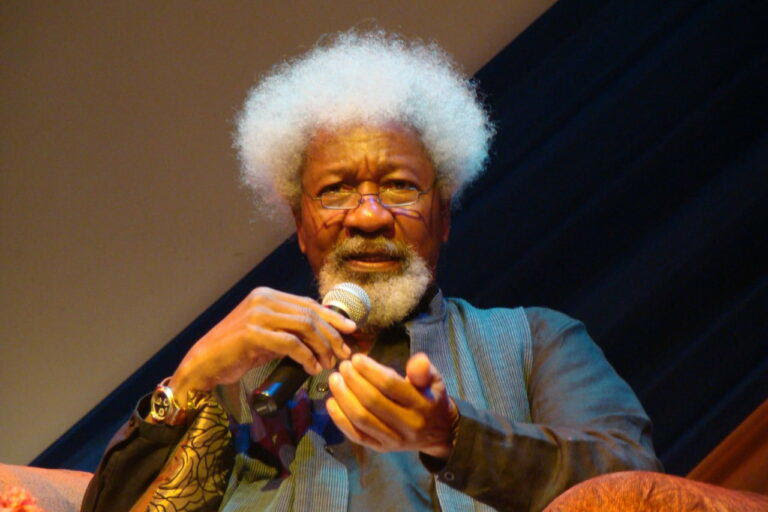Nobel laureate Professor Wole Soyinka revealed on Tuesday that the United States has revoked his visa, effectively preventing him from entering the country for the time being.
He made the announcement during a media briefing at Kongi’s Harvest Gallery, Freedom Park, Lagos Island, noting that he was unaware of any actions on his part that could have justified the revocation.
“It is necessary for me to hold this conference so that people in the United States who are expecting me for this event or that event do not waste their time.
I have no visa; I am banned, obviously, from the United States. And if you want to see me, you know where to find me,” Soyinka told journalists.
The exact reason for the visa cancellation remains unclear, with Soyinka himself admitting that he is still uncertain about the cause.
He explained that the US Consulate communicated the revocation through a letter dated October 23, 2025.
“This letter serves as official notification by the United States Consulate General in Lagos that the nonimmigrant visa listed below has been revoked pursuant to the authority contained in U.S. Department of State regulations,” read part of the letter, which Soyinka showed to reporters.
The notice was issued by the NIV Section of the Consulate.
Expressing his bewilderment over the situation, the Nobel Laureate said, “I’m still looking into my past history… I don’t have any past criminal record or even a felony or misdemeanour to qualify for the revocation.
I’ve started looking back—have I ever misbehaved toward the United States of America? Do I have a history? Have I been convicted? Have I gone against the law anywhere?”
Earlier, on September 10, 2025, Soyinka had stated that he would not attend a visa re-interview invitation from the US Consulate in Nigeria, scheduled for Thursday, September 11.
He made the declaration in an interview, responding to the Consulate’s call for Nigerians holding B1/B2 visas to appear for what was described as a “visa interview.”
Soyinka’s visa is a B1/B2 classification, which allows temporary, non-immigrant travel to the United States for business (B-1) or tourism (B-2).
“I would like to begin by stressing the fact that, for me, this is not a personal issue. I have no idea how you got to know. By the way, I also received the letter, which at first I thought was fake. I thought it came from scammers who prey on those eager to get visas elsewhere, promising to deliver them for a certain amount. I thought they had simply picked my name among others, knowing there was a list of invitees.
So, at first, I thought it was advance-fee fraud because I had never received that kind of letter from that or any other embassy. I even thought that maybe AI had been generating generic letters. It was very strange.
So, by the time I came to terms with the fact that the letter was genuine, my mind went to my relationship with individual ambassadors, Consuls General, and Cultural Attachés. As you know, it has always been a courteous relationship,” Soyinka told PM News in September.
The Punch

